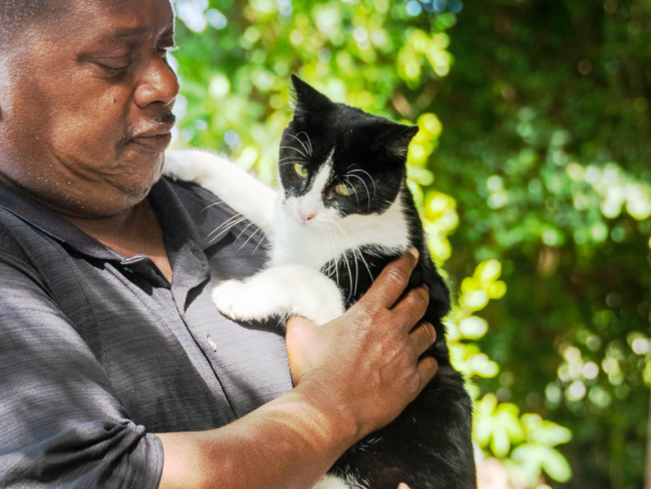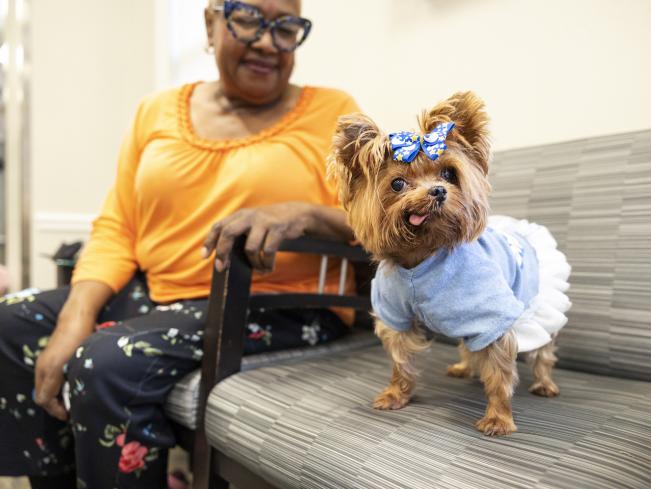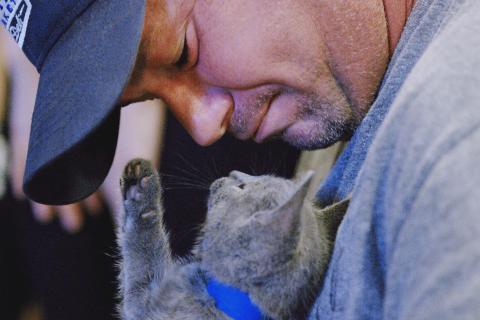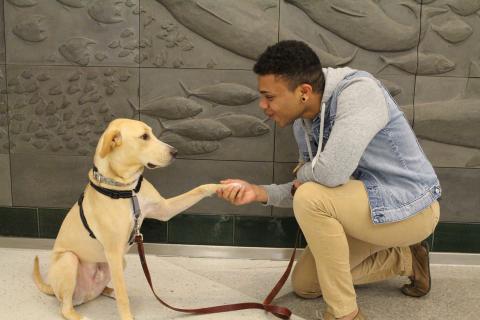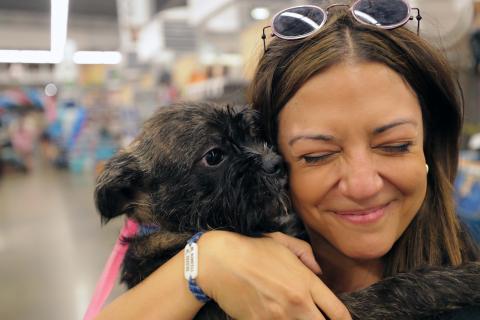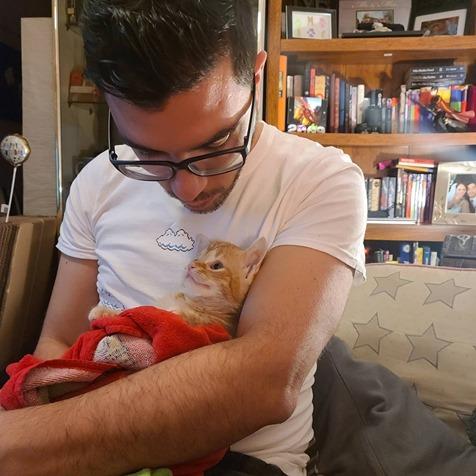Amelia, or Amy for short, a black English Lab, was dumped on the doorstep of Robin Hood Rescues. She’d been on the streets her whole life and didn’t even know how to eat out of a dog food bowl or play with toys. Mattie, a Golden Retriever/chocolate Lab mix, was given up by her former pet parents because they were having a baby. “Excuse me?” says Marian Wallace, a technology project manager who adopted Amy and Mattie, “do you not know that Labs and children are the best combination on the planet?”

They’re an especially great combination when the Labs are trained as therapy dogs and now help the children and staff at Phoenix Children’s Hospital as part of the Animal-Assisted Therapy (AAT) Program, funded in part by a generous grant from PetSmart Charities.
In addition to doing their therapy work at the hospital, Marian, Amy, and Mattie visit halfway houses, domestic violence shelters, hospices, airports, and children’s libraries as part of the Sit Stay Read program. “There are so many different ways we can positively impact kids and older folks,” Marian says.
The dogs’ remarkable work starts the moment they walk out onto the pediatric hospital floors. “If there’s a child crying, they immediately head for that child,” Marian says. “That’s not a learned skill. They were born to do this.” The dogs can also sense boundaries. “When we visit kids having surgery, Mattie instinctively knows whether she needs to be up on that bed and letting the child pet her, or if the child is too fragile.”
Some children are afraid of dogs, but Marian says that’s a good chance for an educational experience. “We teach them the right ways to approach a dog, not with the hand out, not with your face directly in theirs. Then my dogs do silly tricks, like high fives and lie down and go night-night. Who could resist that?”
Those silly tricks can come in handy at the hospital. “We’ve been working on a therapeutic program in rehab so we can be of more service to people in occupational therapy,” Marian says. “There was kid there the other day who has no use of his limbs and needed to learn to crawl. My dogs crawl, so he was crawling with the dogs. The kids get such a kick out of it.”
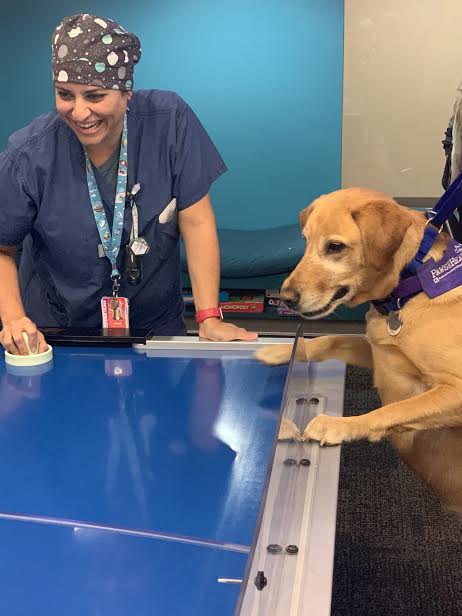
Adults benefit from Amy and Mattie visiting too. In addition to staff-specific visits to help nurses, doctors, and others deal with caregiver stress, parents look forward to seeing the dogs as much as the children do. They also appreciate what these doggie visits mean to their children.
“We’ve had numerous parents tell us they’ve been waiting all day for the dogs,” says Marian. “I can’t tell you how many times a parent has followed me out into the hallway after our visit to say, ‘That’s the first time this day, week, or however long we’ve been here that my kid has smiled.’ That’s why you do this. Our coordinator has all the studies and stats that show how effective this is in helping children, but I don’t see the numbers. I see the smiles. I see them forget what’s going on for a while.”
For more on PetSmart’s AAT Program, visit our website: https://petsmartcharities.org/pro/grants/animal-assisted-therapy


